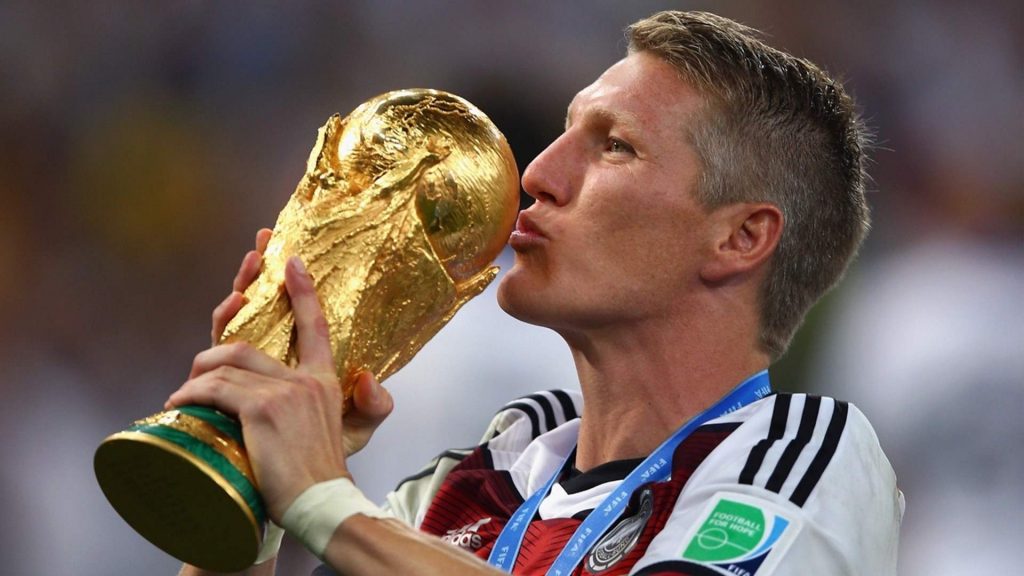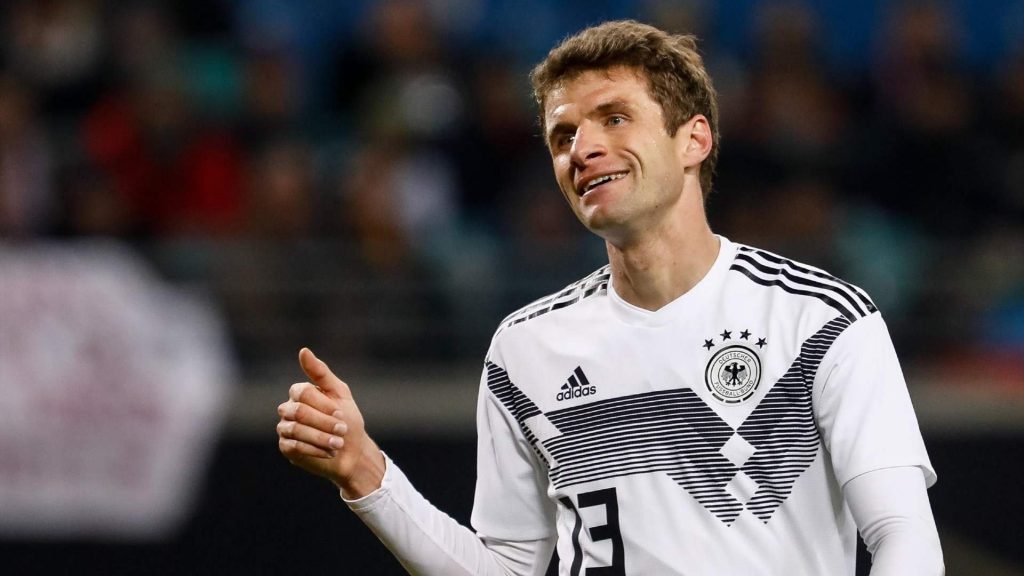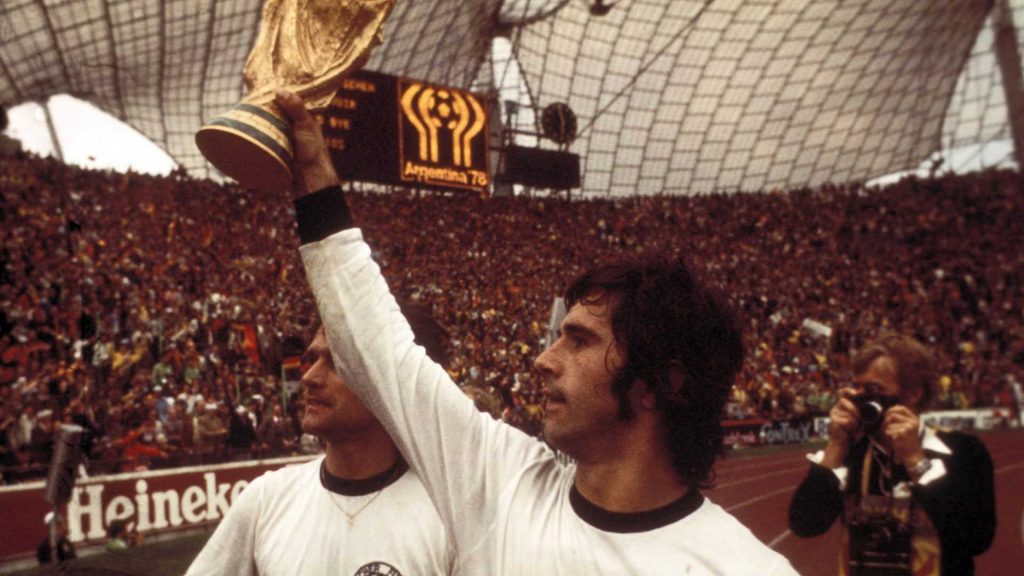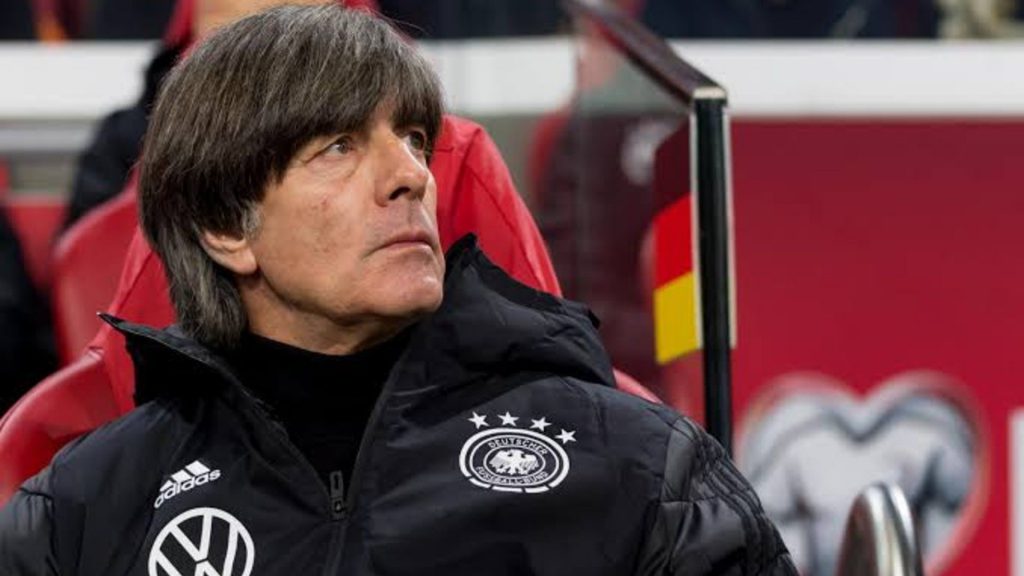Germany produces football talent in droves; many a great has worn their jersey, But who makes an all-time playing XI for Die Mannschaft?
Welcome back to this SportsLumo special, where we chronicle the best of the best in international football. This is a 20-part series, so do stay tuned for content as and when we post it. We have previously covered England, Argentina, Brazil and France in this series. Today’s nation of focus is Germany.
Germany are one of the most well-known powerhouses in European and world football. Their dominance of the sport is evident with a quick look at their trophy numbers; four World Cups, three European Championships, and one FIFA Confederations Cup win as well as an Olympic gold. The iconic white kit with the black, red and yellow strips has been worn by many a legendary player. And the country’s football leagues – epitomised by the top-flight Bundesliga – offers a useful alternative to private ownership. Indeed, clubs are in most cases fan-owned. The 50 + 1 rule, mandating that fans should own at least half and one more share means they always retain the majority control.
The popularity of the sport and an emphasis on the grassroots of the game has produced many a great talent. As such, coming up with a list of the greatest Die Mannschaft playing XI is an extremely tough task.
Yet that is what we will attempt to do right now. So strap yourselves in and read on to find out who makes our list.
Formation: 4-3-3
It’s rare that a goalkeeper does so well that he can drag an unfancied team to the final of a World Cup. Yet that is exactly what Oliver Kahn did in 2002. The favourites tag was not one the Germans carried that year. Yet the exemplary performances and leadership shown by Kahn made it possible.
That they lost the final 2-0 to Brazil shouldn’t distract from the fact that it was an achievement they got there in the first place. And it was Kahn, with his trademark aggressive leadership and composed play in goal, who was key to making it happen.
Yet Kahn’s career is so much more than his 2002 World Cup herocis. He’s one of Germany’s most successful players ever. He won eight Bundesligas, six DFB-Pokals, the UEFA Cup, Champions League and Intercontinental Cup during his time at Bayern Munich. As far as goalkeeping greatness in Germany goes, it’s hard to look beyond Kahn.

The Bayern Munich academy graduate might not have been the most imposing of players. That being said, he was one of the most skilled ever of his generation. Philipp Lahm started his career as a right-footed left-back before eventually moving on to the right side of the defence.
Yet his football brain was such that, at one point, then-Bayern manager Pep Guardiola employed him in midfield. Unsurprisingly, he excelled at the role. Yet Lahm will always be remembered for his skill and guile down the flanks, where he made his name.
He was as adept going forward as he was tracking back, making him a threat everywhere. His overlapping runs were frequent, as was his penchant for accurate crosses. He was also a great leader, captaining Bayern Munich to plenty of success and even leading the national team to the 2014 World Cup. It’s little surprise he’s considered one of the greatest full-backs ever.
Der Kaiser or ‘The Emperor’ as he was popularly known is still seen as one of the greatest defenders to have ever played the game. It’s not often a player becomes the epitome of a certain playing position. Yet that is exactly what Franz Beckenbauer did; he was synonymous with the role of the defensive sweeper or libero.
The role placed an emphasis on playing out from the back as well as being proactive in defence. If that sounds familiar, it’s because that is how modern defenders are expected to play. Beckenbauer was, at the time, a revolutionary player when a safety-first defensive approach was the norm.
He was also a natural leader, being the man at the helm of Bayern Munich’s rise to the top of the Bundesliga. He is also one of three people to have won the World Cup both as captain and manager; the latter of which came in 1990.
Jurgen Kohler was, in many ways, a combination of two defenders. Traditionally seen as a stopper, a defender who was adept at tackles, blocks and very strong in the air. But over time he worked on the technical side of his game too; thus, he became an excellent ball-carrier and passer who could start moves from the back.
Kohler’s career saw him win multiple honours domestically and with his country. He was a trophy winner at Borussia Dortmund and Bayern Munich, as well as with Serie A side Inter Milan. He was also a key part of the Germany side that won the 1990 World Cup and the 1996 Euros.
Sadly for Kohler, injuries would eventually catch up to him and affect how much game time he had. Despite that, he remains one of Germany’s best defenders. He will go down in history as a player who should serve as an inspiration to many.

Paul Breitner was something of a revolutionary character in football during his time. The reason? Not only was he a flamboyant attacking player but he also did what he pleased with little regard for how others felt. That much was evident in his penchant for keeping long hair and an unshaved beard; well before it was the cool thing to do.
His versatility also helped him play plenty of games; he was predominantly a left-back but could also play seamlessly in midfield. Breitner also remains one of four players to have scored in two World Cup finals; he found the net in the final of both the 1974 and 1982 World Cups.
Breitner also annoyed a great many Germans when he moved abroad to play for Real Madrid in Spain. Yet his carefree attitude meant he did as he pleased. He succeeded in Real too, before returning to Germany and winning more trophies. Yet even without that, he was and is a legend of the game.
A versatile player who could play in almost any midfield position, Matthias Sammer is best known as one of Germany’s finest defensive midfielders. The son of former German footballer Klaus Sammer, Matthias excelled in a more defensive role at the heart of the midfield.
His biggest gifts were his in-game positioning and awareness, which helped him intercept opposition attacking moves. Over time, he greatly improved on his tackling too and was brave when going in for duels. Above all, he was also a leader in midfield.
A Euro winner with Germany in 1996, he had the distinction of being capped for both West and East Germany. He won trophies with Borussia Dortmund and even won the Ballon d’Or in 1996. Sadly his career was severely hampered by injuries and he retired aged only 31. Still, that does not take anything away from the amazing career he had prior to that.
Perhaps the biggest praise for Lothar Matthaus came from none other than Diego Maradona. In his autobiography, the Argentine legend called Matthaus ‘the best rival I’ve ever had. I guess that’s enough to define him’. Indeed, it’s hard to find much fault with El Diego’s proclamation.
An energetic box-to-box midfielder with an excellent eye for a pass, tackle or a shot from distance, there was little Matthaus couldn’t do. He was the engine of the German team he played for, as well as the clubs he turned out for.
Matthaus’ achievements stretch beyond just leading Germany to a World Cup win. He is Germany’s most-capped player and also played the most World Cup games for them (25). He’s also one of two men to have played in five World Cups. That he played so much and was still consistently great makes it easy to understand why he is considered one of Germany’s greatest-ever players.

The man dubbed ‘The Brain’ of the German national team during his peak years by none other than then-coach Joachim Low, Bastian Schweinsteiger is regarded as one of the finest midfielders in the modern game. His excellent reading of the game, tactical awareness and energy made him a guaranteed starter for club and country.
Schweinsteiger’s versatility was such that he could play in a variety of roles. He mostly excelled, however, as a box-to-box midfielder capable of picking out a pass from absolutely anywhere. He possessed excellent set-piece delivery too, as well as a good shot from distance.
His time at Bayern Munich saw him win a glut of trophies; he graduated from their youth academy to become a mainstay in the team. Indeed, he was called a “football God” in Germany due to his ability to know seemingly everything going on in the game.

It is often believed that a modern footballer is one who, while he might have a certain preferred position, can operate in a multitude of roles. In that case, no one epitomises the modern footballer better than Thomas Muller. The Bayern Munich star has played seemingly everywhere in the attacking line – and excelled everywhere too.
Muller’s strengths are many – his work-rate is immaculate, he can score and assist goals and his off-the-ball movement is legendary. That is why, despite not always playing as an out-and-out forward at all times, he is always among the goals. But his game is so much more than goals.
His all-round ability and intensity translates to the team he plays for as well. It is little surprise that Bayern and the German national team look different when he’s in the XI. Little wonder then, that he’s Germany’s most decorated player in terms of trophies won.
Jupp Heynckes is best known to modern fans for his multiple managerial stints with Bayern Munich. However, the forward was quite some player in his day as well. His goal-scoring is the stuff of legends at former club Borussia Monchengladbach.
Indeed, over two spells at the club, he scored a total of 288 goals for the side. His overall goalscoring exploits make him the fourth-highest goal-scorer in the history of the Bundesliga; no mean feat when you consider just how many good forwards Germany has produced.
He was a key part of the West Germany side that won the 1972 Euros and 1974 World Cup. Heynckes scored a total of 14 goals in 39 appearances for the national team. He also won plenty of honours with Monchengladbach and is rightly remembered as a legend of the game.

If Thomas Muller is the type of attacker who can do many things, his legendary namesake Gerd Muller was something of the opposite. Gerd’s game can be defined by one thing and one thing only – goals. As a result, it is little surprise to discover that he scored a lot of them.
His game revolved around being in the right place at the right time – mostly the six-yard box – to slot the ball home. He possessed decent speed over short distances, which helped him get into good positions quickly. But his main obsession was finding the back of the net.
As such, it’s little surprise that he is the Bundesliga’s all-time record goal-scorer; he also found the back of the net 68 times in 62 Germany games he played. His goals were key to Germany’s success, as well as in making Bayern Munich the powerhouse they are today.

The man whose 15-year tenure as Germany manager is the longest for an international manager in Europe, Joachim Low is an easy pick for this list. Not only did he win Germany two international trophies – the 2014 World Cup and 2017 Confederations Cup – he also brought about a change in culture within Die Mannschaft.
Low was assistant manager to Jurgen Klinsmann in 2006, when the two decided to focus on young players and an attacking brand of football. That year’s World Cup saw them finish third, leading to Low getting the job permanently in 2008. He finished runner-up in the 2008 Euros and third once again in the 2010 World Cup.
The 2014 World Cup brought the reward of all those year’s hard work, with Germany becoming world champions once again. Low not only got the side playing attacking football, he also introduced a number of fresh faces into the side on a consistent basis. This ensured the talent pool for the country was always healthy.
His time at the job may have ended unceremoniously, but the work he did will hold Germany in good stead for years to come.